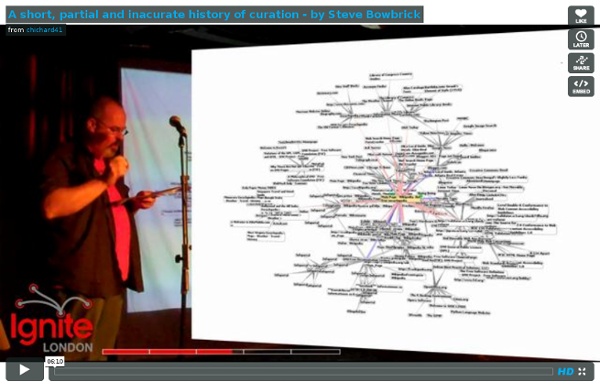



Mechanics BBC News: "Dark matter hunt: US LUX experiment reaches critical phase" (video) Public Lecture on Friday, April 11: "All Stars: Reflections on the Study of the History of Astronomy at Brown" at Ladd Observatory LUX dark matter results confirmed Science and Curiosity walk into a pub: Professor Dell'Antonio discusses dark energy at the English Cellar Alehouse, as part of the series organized by the Science Underground group Brad Marston and Jim Valles have been elected as 2013 fellows of the American Physical Society LUX Experiment leads off Nature's "365 days: 2013 in review" Paxson, faculty in DC for Higgs event Welcome to the Physics Department! We offer undergraduates a comprehensive experience that includes many opportunities to work directly with cutting-edge researchers who are also dedicated classroom instructors. Please explore this site to learn more about our exciting research initiatives and what Brown Physics can offer you.
6 simple steps to keep your mind sharp at any age May 24, 2011 Everyone has the occasional “senior moment.” Maybe you’ve gone into the kitchen and can’t remember why, or can’t recall a familiar name during a conversation. Memory lapses can occur at any age, but aging alone is generally not a cause of cognitive decline. When significant memory loss occurs among older people, it is generally not due to aging but to organic disorders, brain injury, or neurological illness. Studies have shown that you can help prevent cognitive decline and reduce the risk of dementia with some basic good health habits: staying physically active, getting enough sleep, not smoking, having good social connections, limiting alcohol to one drink a day, and eating a balanced diet low in saturated and trans fats. Memory changes can be frustrating, but the good news is that, thanks to decades of research, there are various strategies we can use to protect and sharpen our minds. 1. A higher level of education is associated with better mental functioning in old age.
Mama Gena's School of Womanly Arts BBC Learning - Open Lab Top 10 Universities With Free Courses Online #1 UC Berkeley Ranked as the #1 public school in the United States, Berkeley offers podcasts and webcasts of amazing professors lecturing. Each course has an RSS feed so you can track each new lecture. Visit:Berkeley WebcastsVisit:Berkeley RSS FeedsVisit:UC Berkeley on Google Video Getting The Most From Berkeley Webcasts Berkeley Videos are in .rm format and real player can be a pain. Download:Real Alternative PluginDownload:Media Player Classic For Windows XP/2000Download:Media Player Classic For Windows 98/ME #2 MIT Open Courseware The Massachusetts Institute of Technology is ranked 7th nationally in the United States. Visit:MIT OpenCourseware Course ListingsVisit:MIT OpenCourseware Online TextbooksVisit:MIT Courses With Video LecturesVisit:MITWorld Public VideosVisit:MIT Pocast: ZigZag Getting the Most Out of MIT OCW Download:Foxit Reader #3 Carnegie Mellon's Open Learning Initiative Carnegie Mellon is a private research university ranked equal with Berkeley. Visit:Carnegie Mellon OLI
Six Pixels of Separation - Marketing and Communications Blog - By Mitch Joel at Twist Image Is your head bleeding? Is your heart bleeding? Here's my thought (and, I say this with full disclosure that I am no IT expert and have limited knowledge of the hacking space beyond a personal interest in better understanding technology - peace and love... peace and love...), but the process of text-based passwords needs to be tossed out. It just has to happen. Why this is so important to talk about for marketers? The brands that win are the brands that can be trusted. It's like a full time job to manage this stuff, isn't it? It gets worse. Blame the passwords. These systems were built in a such a way that invites problems and challenges. Some thoughts on a better way to connect. I read with interest The Globe And Mail article published yesterday, Fed up with passwords? Organic solutions to technical challenges. In short, we need to use the small things that make us individuals unique from one another as the way in which to secure the content, flow and information we connect with.
Best Practices For Writing For Online Readers I have less than 30 seconds to capture your attention with this post, so here goes: if you read some, most or all of the next 750 words or so, you will know how to write Web copy that is more useful to readers of your blog or Web site. As we reported yesterday visual content is continuing its steady rise in dominance over written content. But that doesn't mean we should give up on good writing: if anything, it means we need to think harder about how we write for online readers. Online Readers Are Different Seems pretty obvious, right? With offline readers, we can take our time and develop points with long blocks of text and narrative, and with fewer visual elements. In Plain English, Please Your writing - offline or online - is effective when readers take away your message. People who read our blog posts come from all over, and from a wide range of backgrounds. Best Practices Write compelling but clear headlines: Don't get cute. How long should it be?